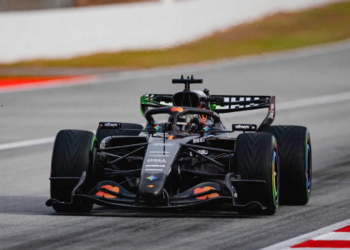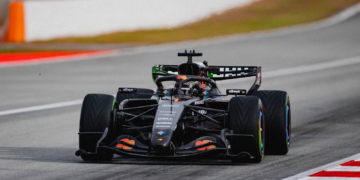French car manufacturer Renault is soon to announce that it is being forced to cut costs by €2 billion in response to a drop in demand due to the coronavirus pandemic.
The automotive sector has been hit hard by lockdown measures with sales of new cars in Europe – Renault’s biggest market – dropping 40 per cent in the opening quarter of 2020, whilst April has seen a sharp decline of almost 80 per cent.
A board meeting has been scheduled in which it’s expected Renault – which is part-government owned – will announce major cut backs with reports it will close up to four factories across France, including its newly upgraded Dieppe Plant which produces the A110, a model in the relaunched Alpine range which has failed to meet expectations.
It’s also expected the Renault model range will be cut back dramatically to its main core – those which drive sales.
Of course this raises several other questions, most notably the future of its Formula 1 team.
For most manufacturers F1 is a major cost with the likes of Mercedes and Ferrari spending upwards of €300 million a season and those that have engine projects, such as Renault, another €200 million can be added to that tally.
Whilst Renault doesn’t operate on quite the same budget level as Mercedes, Ferrari and Red Bull, it is still a substantial sum and one that has so far failed to deliver anything substantial in terms of results, with a best finish of fourth at the Italian Grand Prix last year and a final championship position of fifth, behind its customer team McLaren.
Whilst a large portion of its budget is offset by sponsor and prize money income, like almost all teams it runs in a deficit of tens of millions.
But could the team survive the chopping block?
There’s a lot to consider here. Renault has a history of dipping its toes in and out of Formula 1, and with varying levels of resources. Would the board consider following this pattern to make a quick cost saving?
It has an expensive engine programme which from 2021 will have no customers to offset the costs as McLaren has agreed a deal to switch to Mercedes power, but with stable engine regulations and a proposal to freeze engine development, those costs could should be greatly reduced in the very near future.
The biggest positive to sticking with F1 is the now delayed 2022 regulation changes, which aim to level the playing field and open up the opportunity for more teams to compete at the front, this will hopefully make the sport a far more attractive place for manufacturers.
And of course we have the upcoming budget cap which will be in place next year, cutting budgets to $145 million a season – a massive reduction for the likes of Mercedes and Ferrari, and whilst Renault operates at a far lower level, it too should see its budget dropping as a result.
Under a yet to be signed Concorde Agreement governing 2021 and beyond, a fairer prize money model is also set to be implemented in the hope almost all the teams will become profitable entities going forward, with an expected prize pot of $1.1 billion (based on 2019) divided by 10 teams almost equally should cover upwards of 65-75% of a team’s budget.
Of course this is dependent on F1 itself recovering from the current pandemic, which has seen its own revenues slashed, which will have a direct impact on the money paid out to the teams, but this should be a mere one-off blip in anticipation of a return to a 22-race calendar for 2021.
Retaining all four manufacturers through the current pandemic is also of high importance for the FIA and for Liberty Media, while also showing that major brands have faith in the championship’s direction long-term.
So there’s certainly a lot of reasons for Renault to stick with its F1 programme…we’re just not sure a certain Cyril Abiteboul will survive the chopping block!









Discussion about this post